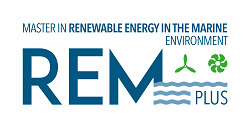Language policy
The teaching language for the Programme will be English at all of the partner universities. English proficiency is a pre-requisite.
For an easier and consistent understanding of language requirements, use of the Common European Framework of Reference for Languages (CEFR): http://europass.cedefop.europa.eu/en/resources/european-language-levels-cefr will be highly recommended, so the minimum requirement for non-native English speakers is “B2”.
Applicants whose native language is not English is required to pass a recognized international English test such as TOEFL (score 90 IBT), B2 First (formerly Cambridge English First), IELTS (score 6.5 or higher), TOEIC (800) or other English equivalent test.
An applicant who carried out his study in English is eligible, passing a recognized test provides him more chance to be accepted (official confirmation letter is needed). The English test result must be sent before the deadline of application.
The thesis project must be presented in English, and students will be required to add an executive summary in the host institution local language.
The four organizing universities will offer local language and culture learning support through training courses in several European languages and will provide local language courses for foreign students taught by specific departments, free of charge for students on mobility programmes:
| LOCAL LANGUAGE AND CULTURE LEARNING SUPPORT | |
| UPV/EHU | http://www.ehu.eus/en/web/nazioarteko-harremanak/en-additional-info#3 |
| NTNU | https://ntnu.edu/studies/international/norwegian-requirements-and-courses |
| ECN | https://centralefle.wordpress.com
Mandatory lectures will be offered with respect to French language and culture |
| UCC | https://www.ucc.ie/en/igl/ |
[last update = 10/27/2020]
